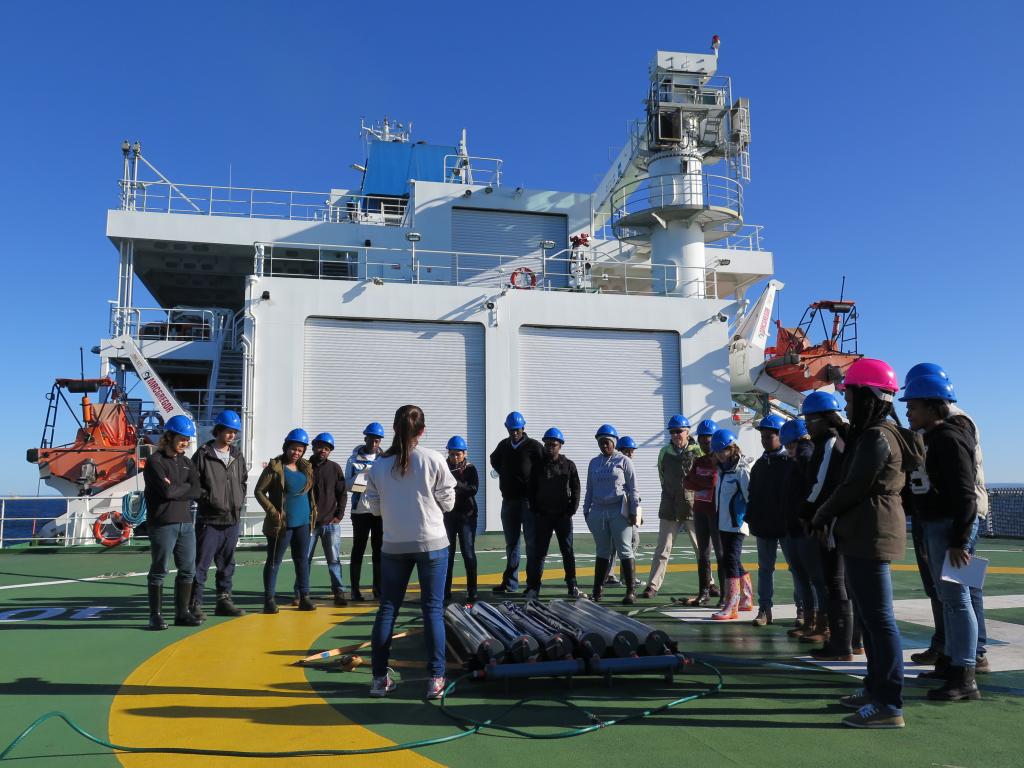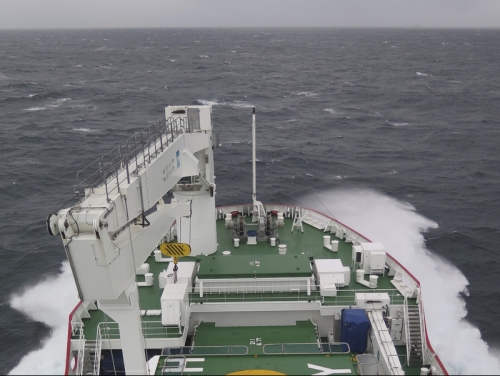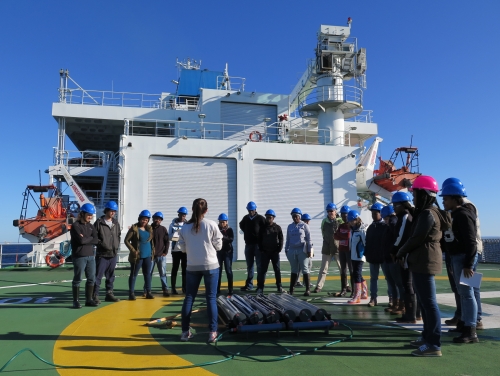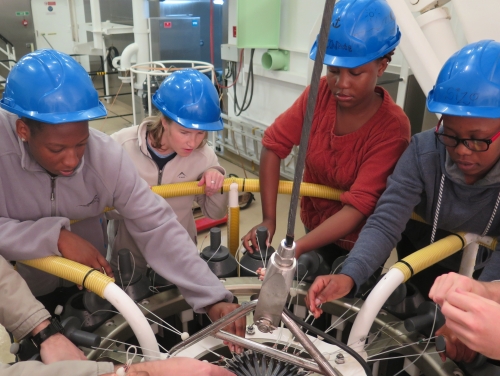Heading out to sea


SEAmester takes postgraduate students from different South African universities on a learning experience in the marine sciences aboard the SA Agulhas II.
SEAmester is South Africa’s first floating university classroom that unites students from diverse backgrounds and bonds them through their shared love for the ocean.
A group of six oceanography students from UCT will join 42 of their peers from 14 universities and institutes of technology across the country from 17 to 28 July on a 10-day research cruise to study ocean and atmospheric dynamics, how the oceans respond to a changing climate and to learn about the tools of the trade.
For the majority of the students participating in SEAmester, this will be their first time at sea.
The entire voyage and each student’s participation is funded by the Department of Science and Technology with the aim of empowering young scientists and building their knowledge and understanding of how the ocean is responding to climate change.
SEAmester offers a choice of two separate programmes: “Tools of the trade” and “Oceans in a changing climate”.
“I have chosen the ‘Tools of the trade’ course in the hopes of gaining hands-on experience with oceanographic equipment and enhancing my knowledge of ways in which we can observe and collect data from the ocean,” says UCT honours student, and 2017 SEAmester attendee, Sean Evans.
Evans has been to sea before but on a smaller vessel and admits that he is prone to seasickness but says that he has “figured out that nibbling on ginger biscuits is the solution to most things in life and it seemed to work”.
He says that if he could “give one word to describe being on a ship it would be ‘confined’, which has a negative connotation, but when you are there to meet new people and exchange ideas it can be one of the largest benefits to a programme such as this”.
The floating classroom

Finding their sea legs – Raquel Flynn, an honours student in the Department of Oceanography at UCT, orientating students on deck during the 2016 SEAmester voyage.
The coursework will be divided between theoretical learning in the classroom and a practical hands-on education on deck and in the laboratories. The subjects taught on board will cover a broad range of interesting topics from ocean waves and marine conservation planning to the reasons why whales, dolphins and seals are able to survive in certain foreign environments. The students will attend lectures in the mornings, and the afternoons will be spent on deck and in the lab participating in real ocean research and sampling.
Vonica Parold of UCT’s Percy FitzPatrick Institute of African Ornithology is joining the cruise to teach learners about plastic in the ocean.
“The lectures will cover the history, sources of plastic, the distribution, the impact on marine life and possible solutions to reduce plastic pollution in our oceans,” says Parold.
Harry Luyt, currently a master’s student in Applied Ocean Sciences (AOS), attended SEAmester in 2016 when he was doing his honours at Stellenbosch University. Luyt says that the experience led to significant changes for him as without SEAmester he would never have made contacts with UCT lecturers and would not have heard about the UCT AOS master’s degree.
“Without SEAmester, I would not be here,” says Luyt.
Real research experience

In addition to the SEAmester educational programme, there is also a purely scientific reason for the voyage – the maintenance and refurbishing of an array of current meters, which measure the speed and direction of ocean flow across the South Atlantic. This collection of instruments, called SAMBA (the South Atlantic MOC Basin-wide Array), is part of an international project to monitor changes in ocean heat and salt transport between South Africa and Brazil.
“The 2017 SEAmester goes along the SAMBA line in the South Atlantic, which is my region of interest and the focus of my MSc,” says Ngwako Mohale, a second-year master’s student at UCT who will be on board as a student lecturer.
The fact that the students are studying marine science in an environment where real ocean research is taking place heightens and enriches the learning experience.
Diversity of SEAmester
Students from a wide range of backgrounds (races, religions and cultures) will come together with the common purpose of learning about our oceans. Some of these learners come from institutions that have limited laboratory facilities and do not have access to an ocean research vessel.
UCT students have historically been very lucky in that the Department of Oceanography regularly participates in ocean research cruises, providing postgraduate students with the opportunity to go to sea. SEAmester is designed to address this inequality between different tertiary institutions across South Africa by accepting at least one student from every university and institute of technology that applied to join.
“I believe that having people from different institutions and disciplines is what makes SEAmester great,” says Mohale.
Evans agrees, saying that he is looking forward to meeting students and lecturers from multiple universities working within similar fields.
SEAmester is an inspirational programme that brings students from all around the country together to learn and grow, to transform into better marine scientists, so that together they will be able to guide South Africa into a future of sustainable utilisation of our ocean resources.
Story by Katherine Hutchinson
Photos: Jean Brundrit
